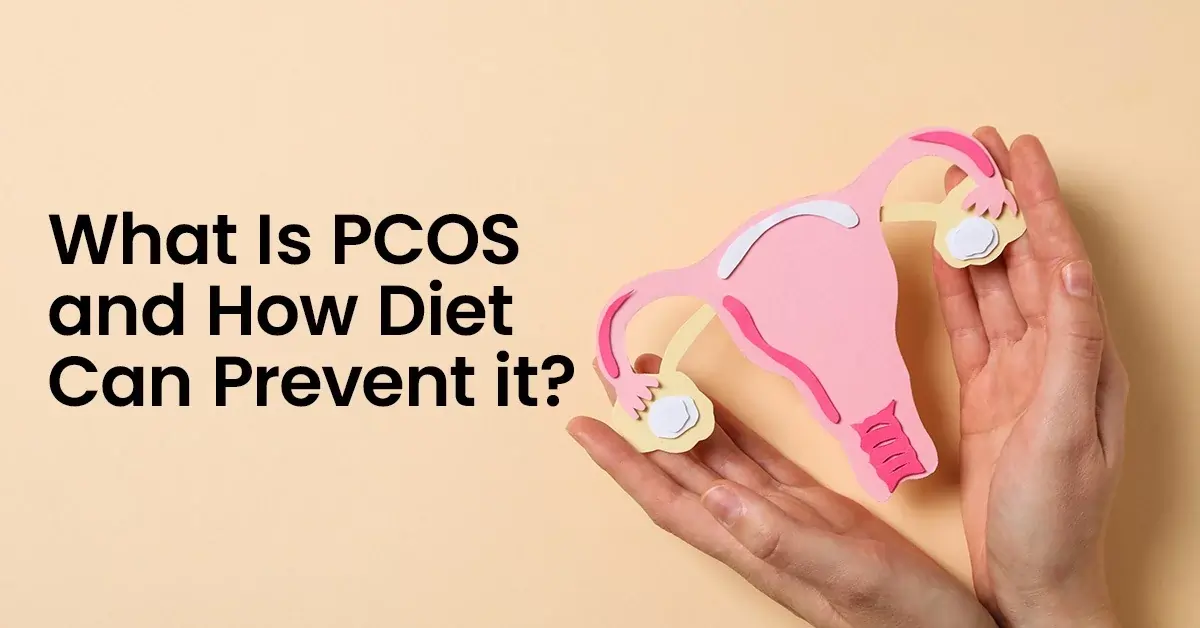Polycystic Ovary Syndrome (PCOS) is a common hormonal disorder affecting many women of reproductive age. Characterized by irregular menstrual cycles, elevated levels of male hormones, and polycystic ovaries, PCOS can lead to various health issues, including infertility, diabetes, and heart disease. However, the good news is that diet can play a crucial role in managing and even preventing PCOS. A well-balanced PCOS diet meal plan that focuses on regulating blood sugar levels, reducing inflammation, and maintaining a healthy weight can significantly improve PCOS symptoms and overall health.
What is PCOS?
PCOS, or Polycystic Ovary Syndrome, is a condition characterised by hormonal imbalances, irregular menstrual cycles, and cysts in the ovaries. It affects a significant number of women worldwide and can lead to complications such as infertility, diabetes, and heart disease. Understanding what is PCOS is the first step in managing the condition effectively.
What are PCOS Symptoms?
Recognizing what PCOS symptoms are can help in early diagnosis and management. Common symptoms of PCOS include:
- Irregular periods: Infrequent, irregular, or prolonged menstrual cycles are common in PCOS.
- Polycystic ovaries: Enlarged ovaries containing numerous small cysts.
- Weight gain: Many women with PCOS experience significant weight gain or have difficulty losing weight.
- Thinning hair: Hair loss on the scalp.
- Skin issues: Darkening of the skin, particularly along neck creases and underneath breasts.
How Can Diet Meal Plan Prevent PCOS?
A PCOS diet meal plan plays a critical role in managing the symptoms and can even help in preventing the condition. Here’s how:
1. Regulating Blood Sugar Levels
A diet that helps maintain stable blood sugar levels can be beneficial. High blood sugar levels and insulin resistance are commonly associated with PCOS. Consuming a low-glycemic diet that includes whole grains, vegetables, fruits, and lean proteins can help manage insulin levels.
2. Reducing Inflammation
PCOS is often linked with increased inflammation in the body. Anti-inflammatory foods such as leafy greens, nuts, olive oil, and fatty fish like salmon can help reduce inflammation.
3. Weight Management
Maintaining a healthy weight can reduce the severity of PCOS symptoms. A balanced diet combined with regular physical activity can aid in weight loss and improve hormonal balance.
PCOS Diet Meal Plan:
Creating a PCOS diet meal plan using a variety of foods can be delicious and effective. Here’s a sample plan to get started:
1. Breakfast
Option 1: Besan chilla (gram flour pancake) with a side of mint chutney.
Option 2: Masala oats with vegetables.
2. Mid-Morning Snack
A handful of roasted chana (chickpeas) or a bowl of fresh fruit like papaya or apple.
3. Lunch
Option 1: Brown rice with dal (lentils) and a side of sautéed spinach or mixed vegetables.
Option 2: Millet rotis like Jowar or Bajra with sabzi and cucumber raita.
4. Afternoon Snack
A small bowl of curd with a pinch of roasted cumin or a handful of nuts like almonds or walnuts.
5. Dinner
Option 1: Grilled fish or tofu with a side of stir-fried vegetables and whole wheat roti.
Option 2: Vegetable curry with a side of quinoa or brown rice.
6. Evening Snack
A bowl of mixed berries.
Understanding what PCOS symptoms are and how diet can prevent PCOS is crucial for managing this condition effectively. A balanced diet that focuses on regulating blood sugar levels, reducing inflammation, and maintaining a healthy weight can make a significant difference.
For personalised advice and a tailored PCOS diet meal plan, consult Nutritionist Pallavi Srivastava. Her expertise as a nutritionist for PCOS can guide you towards a healthier lifestyle and better management of PCOS symptoms.
Take the first step towards better health by making informed dietary choices and seeking professional guidance!

